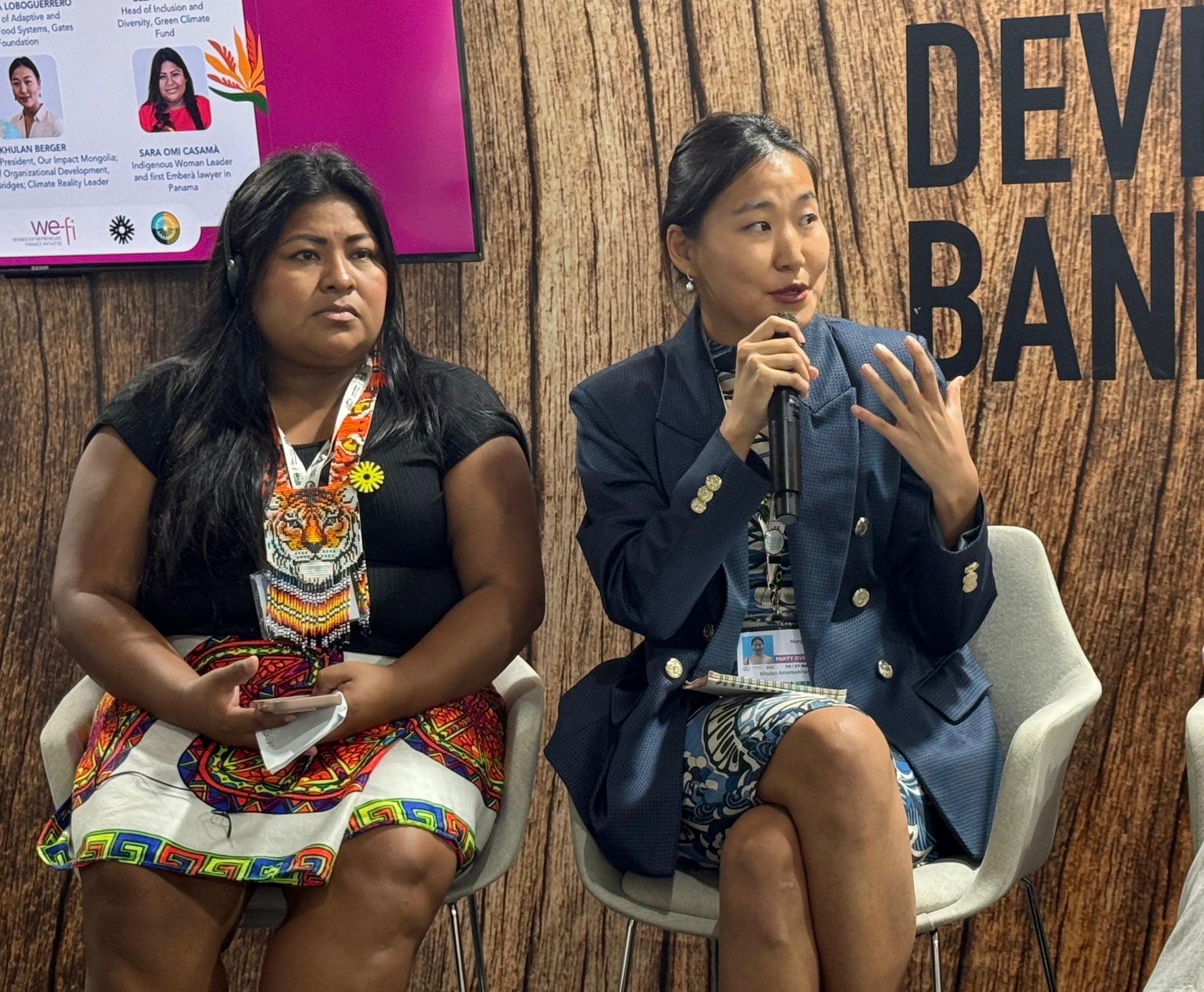COP30: accelerating climate finance for women entrepreneurs
OpEd by Elise Buckle, Founder of Climate Bridges, Member of the Club of Rome
Originally published in French on 18 November, 2025, in Le Temps (link to article - behind paywall)
Belém, Brazil – As COP30 takes place in the heart of the Amazon, the "green lung" of the planet, world leaders face a decisive choice for humanity's future: will they invest in protecting life, or in weapons of destruction? President Lula has set the tone in his opening speech, stating: "Let's invest in the forest rather than in war."
The Amazon contains more than 550 million hectares of forest, 390 billion trees from over 16,000 different species—the world's largest reservoir of biodiversity. It's said to have 50 times more trees than there are humans on Earth.
This immense treasure of life is, however, threatened by deforestation, illegal gold mining, and disruptions to the water cycle linked to climate change. According to scientist Johan Rockström, we have reached a tipping point: without decisive action, the Amazon rainforest could dry out and transform into savannah by 2050. The Amazon has become a carbon emitter, releasing more than it absorbed over the previous 10 years.
By launching the Tropical Forest Forever Facility, a fund dedicated to forest protection endowed with public investment, the COP30 Presidency aims to mobilise an additional USD 100 billion in private funds.
The question remains whether these funds will actually reach local and indigenous populations, who are best positioned to know how to protect and restore their own territories.
This is what representatives of Amazonian communities are demanding this week, having arrived in force in Belém aboard 200 boats for the "People's Summit," on the sidelines of UN negotiations.
We're witnessing a real dystopia in climate finance: less than 1% reaches the hands of local populations, and even less reaches women, whose roles in many societies are those of guardians and carriers of innovative solutions for food security and community resilience. Investing in women's leadership, and particularly in social entrepreneurship, is one of the best choices for the future. It's a triple-win scenario for resilience, food security, and local employment.
The Gates Foundation has just announced a new investment of USD 1.4 billion for adaptation in agriculture. More than 80% of the world's food is produced through the work of women—entrepreneurs and farmers—especially in the Global South. Yet they remain invisible, both in diplomatic and media spaces.
This is why we at Climate Bridges have decided to join forces with the Women Entrepreneurs Finance Initiative (We-Fi) hosted by the World Bank, the Green Climate Fund, the Gates Foundation, the World Food Programme, and Project Dandelion to build together an ambitious program for financing women entrepreneurs active in the climate field by COP31.
The We-Fi initiative has already proven that it is possible to raise USD5.8 billion in private investment, based on a grant of USD380 million from 14 member states, with a leverage effect multiplied by 20 in 63 countries worldwide. Together we are calling for more equality in political and financial decision-making bodies, a demand echoed by the International Gender Champions (IGC) within International Geneva.
Like the Amazon rainforest, it is by valuing the diversity of our human ecosystems that we can move towards durably resilient societies. The climate crisis must mobilise 100% of our collective energy, not just half of it.
Declarations by heads of state, inflated with ego, will certainly not be enough to save the planet. They must be accompanied by genuine listening to the needs of populations and ecosystems, and by deep mobilization of all of society. This is the spirit of the "Global Mutirão," this momentum initiated by Brazil to relaunch climate action at all levels.
At a time when the world is polarising and fragmenting around identity issues, is it possible to adopt a new perspective? The Earth seen from above is nothing other than a great home sheltering a wide diversity of living beings, plants and animals, without flags or territories to conquer. If the universe is our country of origin, nature becomes our common nationality. The stakes are colossal. Humanity's survival will depend on our ability to change our level of collective consciousness, as much as on the deployment of political, technological, and financial means.
Let us enrich ourselves through our differences, to make them a real strength. And above all, let's take action. COP30 is a unique opportunity to come together around what is most precious: our shared love for life on Earth.

